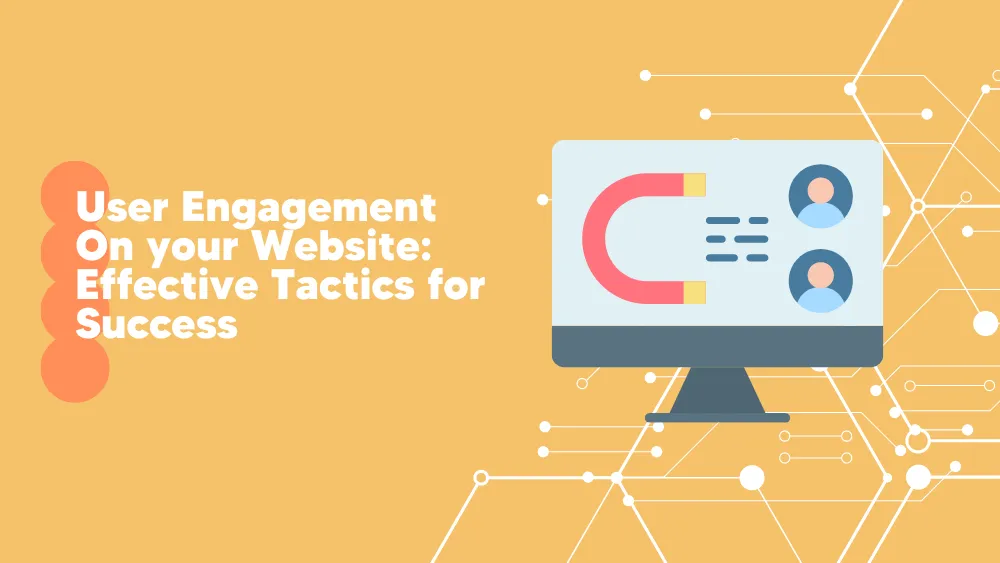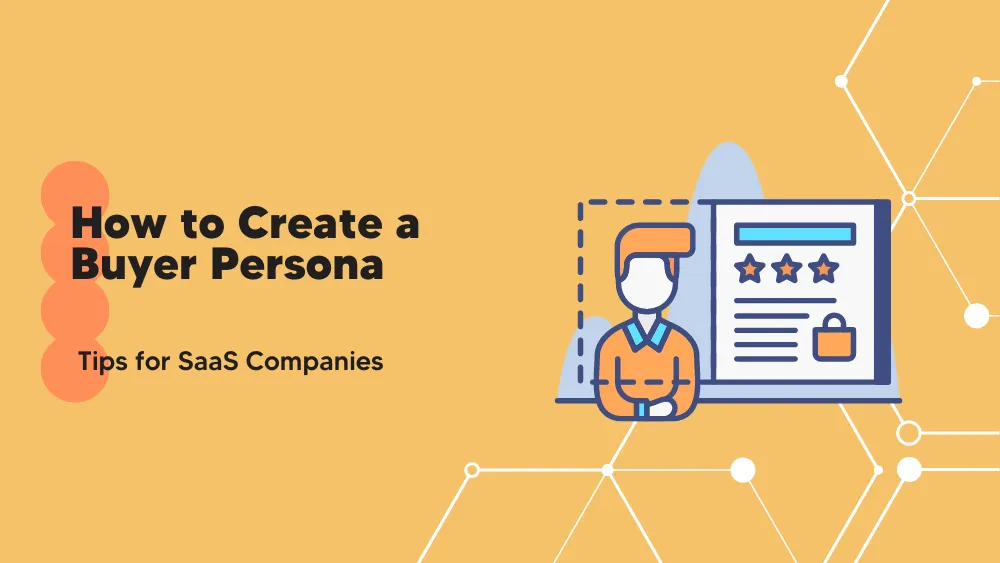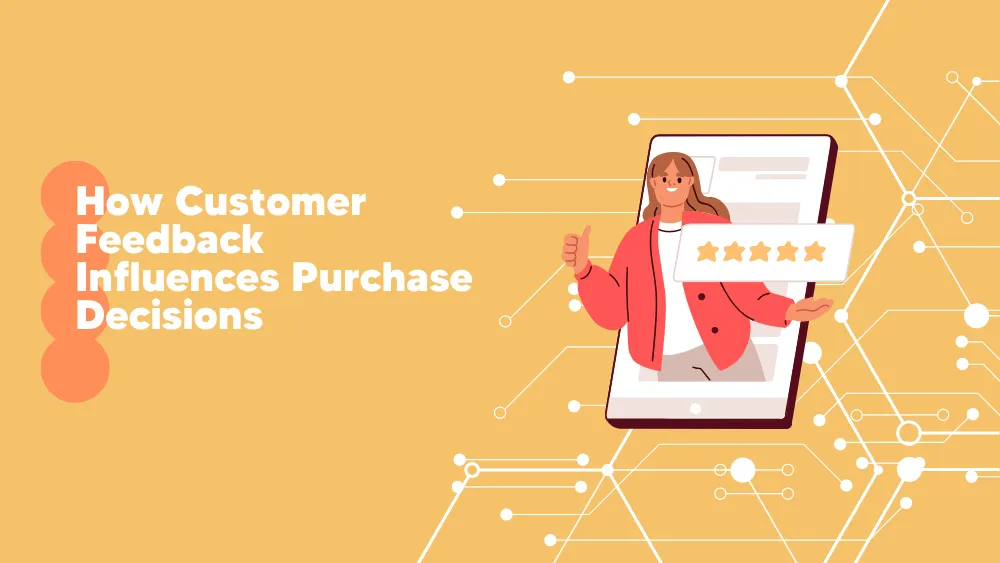B2B marketing automation has emerged as a transformative tool for businesses aiming to optimize their marketing strategies and achieve better results. As businesses strive to stay competitive, automation has emerged as a key driver of growth and efficiency, transforming how companies engage with their target audiences.
The B2B marketing automation approach is a powerful strategy designed to streamline your marketing processes and enhance lead generation. Delivering personalized and timely messages based on audience behavior and preferences strengthens relationships with prospects and customers, drives engagement, and increases overall revenue.
This article will guide you through mastering B2B marketing automation strategies, from understanding the core benefits to implementing best practices to elevate your business. Whether you’re new to automation or looking to refine your strategy, you’ll find actionable insights to help you succeed.
What is B2B Marketing Automation?
B2B Marketing automation is like having a personal assistant who knows exactly when and how to engage with your business customers, just like a barista who remembers your coffee order every morning. Imagine if every email, message, or offer you send out is timely and personalized. With marketing automation, businesses use tools and software to handle repetitive marketing tasks—like sending emails, posting on social media, or nurturing leads—automatically, based on a set of rules and data.
This means businesses can focus more on building meaningful relationships with their clients. The goal is to create a seamless, personalized experience that feels as intuitive and helpful as a well-timed cup of coffee.
Differences Between B2B and B2C Marketing Automation
When it comes to marketing automation, businesses have different needs depending on whether they are targeting other businesses (B2B) or individual consumers (B2C). While both approaches aim to attract and retain customers, their strategies can differ greatly. B2B marketing automation focuses on building long-term relationships with other businesses, often through detailed, personalized communications. On the other hand, B2C marketing automation is all about reaching a broad audience quickly, appealing to individual emotions and immediate needs.
Here’s a closer look at some key differences between B2B and B2C marketing automation:
Who They Target
- B2B (Business to Business): Aims to connect with other businesses, often needing to convince several people before closing a deal.
- B2C (Business to Consumer): This type of marketing focuses on reaching everyday customers, aiming to attract a wide audience and satisfy them quickly.
How the Sales Process Works
- B2B: The sales journey is usually longer and more detailed, needing ongoing communication and relationship-building.
- B2C: The sales process tends to be faster, focusing on quick decisions and immediate purchases.
Making It Personal
- B2B: Emphasizes crafting unique experiences through direct interactions, such as meetings and personalized emails, to address specific business challenges.
- B2C: Uses tactics like loyalty programs, responsive service, and engaging social media to build strong connections and keep customers coming back.
Where They Communicate
- B2B: Leverages professional networks like LinkedIn, industry events, and detailed case studies to provide information that helps businesses make informed choices.
- B2C: Utilizes direct channels like social media, TV, and online ads, aiming to create emotional bonds and strong brand loyalty with eye-catching content.
The Style of Messaging
- B2B: Craft messages for different groups or decision-makers throughout the sales process, focusing on detailed information to help guide choices.
- B2C: Messages are more tailored to each person, aiming to connect emotionally and stay highly engaging on a personal level.
Marketing Automation Benefits
Marketing automation is like having an intelligent assistant that never sleeps. It handles repetitive tasks, keeps an eye on potential customers, and brings your marketing and sales teams together—all while saving you money and providing valuable insights. Let’s dive into how marketing automation can transform the way you work:
- Saving Time and Effort: Automating tasks like sending emails, posting on social media, and generating reports frees up your team to focus on more creative and strategic work. Think of it as putting the routine stuff on autopilot.
- Finding the Best Leads: With automation, you can automatically rank potential customers based on their buying likelihood. This helps your team zero in on the most promising leads, making follow-ups more effective and less time-consuming.
- Bringing Teams Together: Marketing automation acts as a bridge between your marketing and sales teams. By sharing insights and creating a smoother workflow, it ensures everyone is on the same page, leading to better collaboration and faster results.
- Cutting Down Costs: Automating routine tasks means you need less manual work. This not only saves time but also cuts down on costs, making your marketing efforts more efficient and productive.
- Gaining Smart Insights: With automated tools that analyze data and generate reports, you can easily track the success of your campaigns, understand customer behavior, and make smarter decisions based on real-time data.
By tapping into these benefits, marketing automation helps you work smarter, not harder, and drives better results for your business.
Developing a B2B Marketing Automation Strategy
To craft a successful B2B marketing automation strategy, you need thorough planning and a deep understanding of your business objectives. Some practical guidelines for creating a results-driven B2B marketing automation strategy include:
Set Clear Goals
Whether you’re focused on enhancing lead generation, improving lead nurturing, or boosting customer retention, defining your objectives is essential. Setting a SMART goal is crucial before implementing any automation tools. SMART stands for Specific, Measurable, Achievable, Relevant, and Time-bound. Ensuring your goals meet these criteria creates a clear roadmap for your strategy, allowing you to measure success effectively and make informed adjustments. For example, a goal might be to increase qualified leads by 20% over the next quarter.
Understand and Segment Your Audience
Audience segmentation is a critical component of a B2B marketing automation strategy. This process involves dividing your target market into groups based on shared attributes. By organizing prospects into specific segments, you can adjust your marketing strategies to better align with each group’s characteristics and behaviors.
For instance, create distinct campaigns for technology decision-makers versus those in finance. Segmenting by geographical, demographic, psychographic, and behavioral factors can refine your approach and ensure your marketing efforts are efficient and impactful. This focused approach enhances campaign effectiveness and boosts overall engagement.
Select the Right Marketing Channels
After understanding your target audience’s preferences and behaviors, selecting the right B2B marketing channels is crucial for optimizing the effectiveness of your strategy. Conduct market research to gather insights through surveys, interviews, and feedback from your sales team. This data will help you identify which channels align best with your audience’s needs and habits.
For instance, LinkedIn is highly effective for reaching decision-makers and industry professionals, making it ideal for lead generation and networking. In contrast, platforms like Facebook and Instagram might be helpful in retargeting and brand awareness, although their effectiveness can vary depending on your industry and objectives.
Top B2B Marketing Automation Software and Platforms in 2024
Selecting the right B2B marketing automation software is crucial for optimizing your marketing strategy. Here’s a look at some of the leading platforms in 2024, each offering unique features, benefits, and potential drawbacks:
Campaigner
Campaigner is a robust and intuitive marketing automation platform designed for businesses looking to streamline their marketing efforts. Known for its powerful email marketing capabilities, Campaigner has evolved into an all-encompassing tool that integrates seamlessly with other marketing channels, making it a top choice for B2B marketers.
Key Features:- Advanced Segmentation: Create highly targeted campaigns with advanced segmentation tools that allow you to reach the right audience with the right message.
- Automation Workflows: Automate your entire marketing process with customizable workflows that can be set up in minutes.
- A/B Testing: Optimize your campaigns with A/B testing capabilities, ensuring you’re always using the best-performing content.
- Integrations: Seamlessly integrates with popular CRM systems like Salesforce and Zoho, as well as e-commerce platforms like Shopify and Magento.
HubSpot Marketing Hub
HubSpot is a giant in marketing automation, offering a complex suite of tools for small and large businesses. Its user-friendly interface and extensive feature set make it an excellent choice for B2B marketers looking to centralize their efforts on a single platform.
Features:
- Comprehensive CRM integration
- Email marketing automation
- Lead scoring and management
- Detailed analytics and reporting
- Social media management
- User-Friendly Interface: HubSpot is renowned for its intuitive design, which simplifies the user experience and makes it accessible for both beginners and experienced marketers.
- All-in-One Solution: It integrates various marketing tools, such as content creation, social media scheduling, and email marketing, into a unified platform.
- Robust Analytics: Provides in-depth insights and analytics to optimize campaign performance.
- Cost: The pricing structure can be high, particularly for small businesses and startups, making it a considerable investment.
- Learning Curve: The broad array of features might be daunting for newcomers, necessitating time and effort to grasp and utilize the system fully.
Pricing: HubSpot’s marketing automation tools are part of their Marketing Hub, which starts at $50 per month for the Starter plan. More advanced plans, with additional features and higher limits, start at $890 monthly.
Marketo Engage
Marketo Engage, an Adobe company, is a leader in B2B marketing automation, known for its scalability and extensive functionality. It’s particularly suited for larger businesses with complex marketing needs and a focus on customer engagement and retention.
Key Features- Advanced Personalization: Leverage AI-powered personalization to deliver relevant content to each customer based on their unique journey.
- Cross-Channel Campaign Management: Manage and measure campaigns across multiple channels, including email, social, and web.
- Revenue Attribution: Understand which marketing efforts are driving revenue with multi-touch attribution models.
- Account-Based Marketing (ABM): Tailor your marketing efforts to high-value accounts with ABM tools that integrate seamlessly into your existing processes.
Pricing: Marketo Engage offers customized pricing based on your specific needs, making it a flexible option for businesses of all sizes. After a consultation to understand your business requirements, they provide detailed quotes.
Pardot by Salesforce
Pardot, a B2B marketing automation platform by Salesforce, is designed to help businesses create meaningful connections, generate more pipelines, and empower sales to close deals. It is best suited for businesses already using Salesforce or looking to integrate deeply with a CRM.
Key Features- Lead Management: Automate the lead management process from capture to close, ensuring no lead falls through the cracks.
- Email Marketing and Engagement Studio: Create and easily manage personalized email campaigns.
- ROI Reporting: Track ROI across all your marketing channels and understand which campaigns are performing best.
- Salesforce Integration: Full integration with Salesforce CRM provides a 360-degree view of your customers and their interactions.
Pricing: Pardot’s growth plan starts at $1,250 per month and includes basic marketing automation features. Advanced plans with additional features and support start at $2,500 per month.
ActiveCampaign
ActiveCampaign is known for its versatility and ease of use. It offers a range of tools for email marketing, automation, sales automation, and CRM. It’s particularly popular among small—to medium-sized businesses looking for a cost-effective, scalable solution.
Key Features- Marketing Automation: Set up complex automation workflows with a simple drag-and-drop builder.
- CRM and Sales Automation: Integrates marketing and sales activities in one platform to streamline processes and improve efficiency.
- Predictive Content and Sending: AI-powered tools help you optimize email content and send times for better engagement.
- Customer Experience Automation (CXA): Tools to enhance the customer journey, from initial contact to post-sale follow-up.
Pricing: ActiveCampaign’s plans start at $49 per month for the Plus plan, which includes CRM and marketing automation features. The Professional plan, which offers more advanced features, costs $149 monthly. A 14-day free trial is also available.
B2B Marketing Automation Examples
B2B marketing automation can drive substantial growth when implemented effectively. Here are some real-world examples of companies that have successfully leveraged these tools, showcasing strategies and results across various industries:
HubSpot
Industry: Marketing and Sales Software
Strategy
HubSpot has effectively utilized its own marketing automation platform to refine lead management, personalize outreach, and drive engagement. Their strategy focuses on inbound marketing, which draws potential customers in with valuable content and nurtures them through personalized automation.
A significant element of HubSpot’s success is its focus on deeply understanding and addressing customer needs. From its inception, HubSpot has prioritized listening to customer feedback and consistently refining its products and services. This customer-first approach has been integral to their overall strategy, ensuring they adapt and evolve to meet user expectations effectively. Subash Chandran, Growth consultant lead generation expert, claims that “this approach has helped HubSpot build a loyal customer base and foster a sense of community among their users.” This is also explained by HubSpot employees here.
Results: HubSpot’s focus on deeply understanding and addressing customer needs has improved lead conversion rates and lower customer acquisition costs. By integrating various automation tools and maintaining a strong customer-centric approach, HubSpot has enhanced its marketing and sales processes and significantly contributed to its overall growth and success. This customer-first strategy ensures that their solutions effectively align with user expectations, driving better engagement and more efficient acquisition strategies.
Salesforce
Industry: Customer Relationship Management (CRM)
Strategy
Salesforce is a company whose go-to-market strategy has evolved from providing cloud-based CRM to small businesses to establishing itself as a leader in the enterprise market.. They expanded their product range with solutions like Service Cloud and Marketing Cloud, formed strategic partnerships, and launched AppExchange to build a strong ecosystem. Recently, Salesforce has focused on AI, machine learning, and industry-specific solutions like Customer 360, emphasizing innovation and vertical integration, according to a case study conducted in 2023.
Results: Salesforce’s approach has solidified its leadership in CRM, boosting market share and customer loyalty. Their focus on AI, industry-specific solutions, and strategic acquisitions has enhanced customer engagement and operational efficiency, driving significant value across diverse industries.
These B2B marketing automation examples highlight how companies leverage automation platforms to manage customer relationships, personalize interactions, and optimize marketing and sales processes, which are crucial in the B2B marketing context.
Challenges and Solutions in B2B Marketing Automation
Implementing B2B marketing automation can significantly enhance a company’s ability to manage and scale its marketing efforts. However, it also presents a unique set of challenges that businesses must address to achieve success:
Complexity of Integration
One of the most common challenges in B2B marketing automation is ensuring that various technologies – like CRM systems, social media platforms, SEO tools, and marketing automation software – are seamlessly connected. Without proper integration, it becomes challenging to unify customer data, which is crucial for understanding customer journeys, pain points, and interests. Many businesses see the potential in these advanced technologies but struggle to incorporate them effectively into their existing processes.
Solution
Personalization at Scale
Many B2B companies face the challenge of personalizing marketing efforts at scale. Automation tools can sometimes fail to deliver the level of personalization that resonates with potential customers.
Solution
Managing Data Overload
In B2B marketing, the sheer amount of data generated – from customer details to market analytics – can quickly become daunting. This excess can make it difficult to extract meaningful insights and apply them effectively.
Solution
Conclusion
In this article, we explored how B2B marketing automation transforms marketing and sales processes. We discussed how leading companies like HubSpot and Salesforce effectively utilize automation to refine lead management, personalize outreach, and enhance customer engagement. Despite technology integration and data management challenges, adopting robust strategies and leveraging advanced tools can substantially improve campaign effectiveness and decision-making.
The benefits of B2B marketing automation are clear: streamlined workflows, improved customer insights, and enhanced marketing precision. Embracing these technologies can position your business for significant growth and success.
Ready to optimize your B2B marketing efforts? Share this article with your network or explore the best marketing automation platform to see how they can elevate your strategy!








